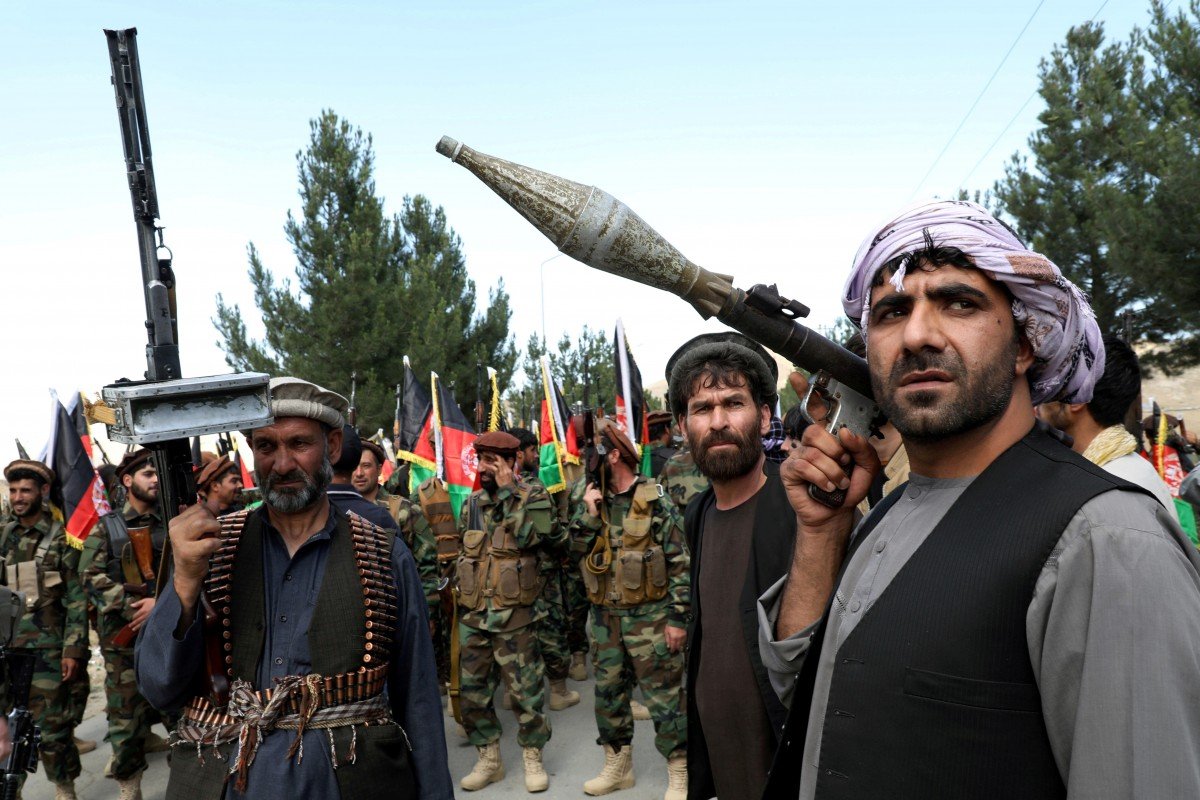The Shanghai Cooperation Organisation may play a more active role in Afghanistan’s security after the planned US military withdrawal prompted an upsurge in violence that threatened to spill over into neighbouring countries, analysts believe.
Led by China and Russia and created in 2001, the SCO also includes India, Pakistan and four other former Soviet republics: Kazakhstan, Kyrgyzstan, Uzbekistan and Tajikistan. It has four observer states – Afghanistan, Mongolia, Belarus and Iran – and six dialogue partners.
As a Eurasian security grouping focusing on anti-terrorism cooperation, member states have conducted multiple joint military exercises.
China has blamed a surge of attacks in the country on the abrupt withdrawal of US and Nato troops after two decades of deployment. Its embassy in Afghanistan warned its nationals to strengthen emergency preparedness and to leave the country as soon as possible.
Beijing also fears that the resulting instability will pose a security threat to its Belt and Road Initiative projects around the region and in Xinjiang, which borders the country.
Three other SCO members – Uzbekistan, Tajikistan and Pakistan – also border the war-torn country.
“The SCO will definitely play a greater role in regional security in the future against the backdrop of the US pulling out its forces out of Afghanistan. The grouping has conducted anti-terrorism military drills in areas including Xinjiang and the border of Tajikistan in the past,” said Ma Bin, a research fellow at the centre for SCO studies at Fudan University.
“China hopes that such cooperation can be enhanced in the future as it can directly aid counterterrorism and extremism efforts in northwest China.”
Ma also said the Soviet Union’s invasion of Afghanistan and heavy losses – a defeat that may have contributed to the eventual break-up of the USSR – would make Russia and the other ex-Soviet states wary of getting involved.
But he said that because of their geographical location “the instability of Afghanistan will directly affect the security of Central Asian countries and Russia” and they may be forced to act in some form.
“Historical issues determine how they will participate, not whether they will participate at all. Furthermore, what we are talking about is helping Afghan reconstruction through diplomatic and economic means, the nature of which is totally different from the Soviet Union military invasion in the 1980s,” Ma continued, adding that the exact role played by the SCO was yet to be determined.
At an event to mark the grouping’s 20th anniversary last week, Chinese Foreign Minister Wang Yi called for closer cooperation, saying: “We should build a strong shield for regional security, unite our efforts in fighting terrorism, separatism and extremism.”
A liaison office between the SCO and Afghanistan was set up in 2005, three years before Afghanistan was given observer status, to discuss security, peace talks and post-war reconstruction.
“It is time to beef up the role of the liaison office and strengthen coordination between each side to seek a peaceful solution to the Afghan issue,” said Pan Guang, director of the centre of SCO studies at the Shanghai Academy of Social Sciences.
He also said members may consider joint counterterrorism operations in future if any SCO member was attacked by terrorist groups based in the country.
Tajikistan and China have staged joint anti-terrorism drills in recent years under the framework of the SCO near Tajikistan’s border with Afghanistan – exercises the Tajik defence ministry said were targeting groups based across the border.
The SCO announced in March that member states would hold an anti-terrorism exercise this year without disclosing the specific date and place. The meeting also approved plans to cooperate “combating terrorism, separatism and extremism” from 2022 to 2024.
Pan added that Beijing had also tried to tackle terrorism in Afghanistan through economic means, such as inviting the country to take part in belt and road projects.
Earlier this month Wang spoke to his counterparts in Afghanistan and Pakistan and said the three countries had agreed to support the “substantial expansion” of the project to Afghanistan.
“China proposes expanding the China-Pakistan Economic Corridor (CPEC) to Afghanistan, so that the Taliban can also participate in the country’s peaceful reconstruction, thus reducing the risk of turmoil,” said Pan.
He also said the China Rail Express, an international freight route, which links China and Europe and passes through Central Asia, could help improve economic ties between the SCO countries.
“One of the important reasons why economic cooperation among the member states is rocky is the issue of transportation. The post-Soviet countries and China do not even use the same track gauge. The CR Express can solve the problem,” said Pan.
But Ma said its value was more symbolic. “In terms of economic and trade cooperation, it … shows China is willing to make great efforts to promote cooperation with other countries. But the current transportation volume of the express is rather low.”













